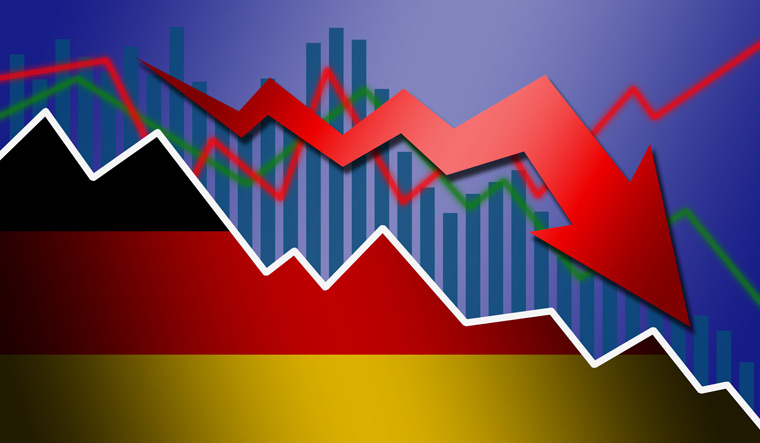World’s fourth largest economy, Germany enters recession
Germany's GDP fell by 0.3% in the first quarter of 2022, marking the country's second successive quarter of contraction and slide into recession. The energy crisis unleashed by Russia's invasion of Ukraine, leading to dwindling energy supplies and stoked inflation, along with other factors, contributed to this economic downturn.

Germany, Europe’s largest economy and the world’s fourth-largest, has officially entered a recession. New figures released by the Federal Statistical Office revealed an unexpected dip in the German economy during the first quarter of 2022, confirming the country’s slide into recession.
The data shows that Germany’s gross domestic product (GDP) contracted by 0.3% from January to March. This decline follows a 0.5% drop in the previous quarter of 2022. With two consecutive quarters of negative growth, Germany now meets the technical definition of a recession.
The first quarter contraction in the German economy is part of a larger economic downturn that has been influenced by various factors, including the energy crisis resulting from Russia’s invasion of Ukraine. This crisis has led to a reduction in energy supplies and an increase in inflation. Additionally, household consumption has declined, but there have been positive contributions from trade and rising investments.
This recession marks a setback for the German government, which recently doubled its growth forecast for the year after fears of a winter energy crunch did not materialize. The government had anticipated a 0.4% GDP expansion, up from the previously predicted 0.2% growth. However, the latest figures may necessitate a downward revision of this forecast.
Economists attribute the decline in the German economy to high inflation, which has affected consumer spending. Prices in April were 7.2% higher than the previous year, putting pressure on households and dampening consumption.
The impact of Germany’s recession extends beyond its borders, with the euro weakening against the dollar due to Europe’s economic downturn. The situation calls for attention and efforts to address the challenges faced by Germany and the broader European economy.
Overall, the confirmation of Germany’s recession highlights the significant economic obstacles the country faces, requiring careful consideration and strategic measures to stimulate growth and recovery in the coming months.



